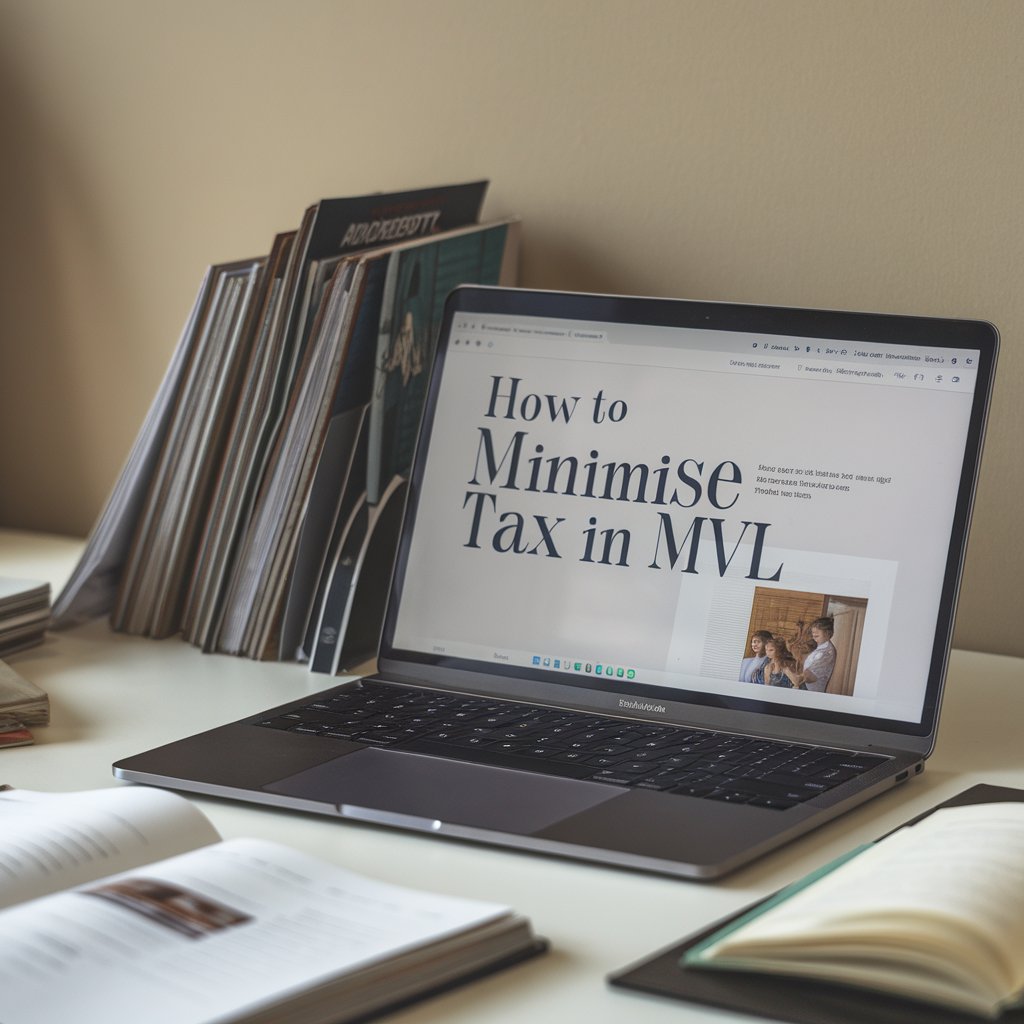What Happens When You Hire an Insolvency Practitioner Many UK directors and business owners face stressful financial problems—ranging from mounting debts to the risk of compulsory liquidation. When these challenges surface, seeking professional support can be the turning point. Hiring an insolvency practitioner UK for your company brings legal protection, business rescue opportunities in the […]
How to Minimise Tax in MVL: A UK Director’s Essential Guide
Many directors consider Members’ Voluntary Liquidation (MVL) an ideal path for closing a solvent company under UK regulations. Beyond the straightforward wind-up process, an MVL can deliver powerful tax benefits, relieving directors of excessive Income Tax exposure and allowing them to benefit from capital gains treatment. This ensures you protect profits, secure a stronger financial future, and wind up your company with confidence. When funds can be distributed as capital, rather than dividends, the potential to save on taxes is significant. Such strategies often involve capital gains relief, including Business Asset Disposal Relief (formerly Entrepreneurs’ Relief). By seeking professional legal advice for tax in MVL, business owners can avoid pitfalls, optimise distributions, and ensure seamless compliance. Nexus Corporate Solutions specialises in guiding you through these key steps so you can focus on future plans. An MVL is a formal solvent company wind-up that enables you to repay creditors in full before distributing remaining assets to shareholders. Directors generally opt for an MVL to unlock accumulated profits in a tax-efficient manner. By appointing a licensed insolvency practitioner such as Nexus Corporate Solutions, you ensure all steps comply with UK regulations and safeguard your personal and business interests. While solvent company closure might sound straightforward, the real advantage of an MVL often lies in the tax element. In many cases, profits can be taxed as capital gains rather than income, enabling directors to explore MVL tax planning strategies to reduce their total tax liability. Whether it’s corporation tax settlement planning prior to liquidation or strategising dividend vs capital distribution, getting it right can boost your financial returns and help you avoid disputes with HMRC in MVL. A core consideration in how much tax can be saved through MVL often revolves around reliefs such as Business Asset Disposal Relief (BADR). If eligible, you may benefit from a reduced Capital Gains Tax rate (e.g., 10%) on qualifying assets. Beyond BADR, there may be ways to reduce corporation tax via early repayment discounts or timing distributions to match lower tax brackets. During an MVL, assets distributed to shareholders are generally treated as capital rather than income, leading to lower tax rates if reliefs apply. This capital distribution to shareholders can trigger different tax consequences compared to a standard dividend. For those seeking to reduce the cost of liquidation and maximise returns, understanding the difference between Capital Gains Tax vs Income Tax is crucial. Engaging early with insolvency practitioners ensures you receive tailored legal advice for tax in MVL. Such counsel covers everything from ensuring Business Asset Disposal Relief eligibility to clarifying how MVL distributions are taxed. Partnering with specialists like Nexus Corporate Solutions helps you navigate crucial compliance factors, optimises your filing strategy, and provides clarity on the formal solvent company closure process. Meeting your director responsibilities in MVL involves obtaining the right legal advice to avoid tax pitfalls. Without a sound plan, directors risk higher tax liabilities, missed reliefs, or costly delays in distributing assets. For instance, failing to time distributions to benefit from a reduced Capital Gains Tax rate can mean unnecessary extra expenses. Also, not settling all company obligations in full could invalidate the MVL process, leading to potential legal complications and a possible investigation into the director’s conduct. When you overlook careful corporation tax settlement planning or final dividend taxation rules, you risk eroding valuable shareholder returns. Attempting a voluntary strike-off process instead of an MVL might seem cheaper, but it can lead to lost opportunities for capital gains treatment. Always speak to a licensed insolvency practitioner to confirm whether an MVL or another option, like a CVA (if debts exceed assets), is the right path. Exact savings vary, but many directors find the shift from paying Income Tax on dividends to paying Capital Gains Tax on liquidation distributions is a game changer. Lower tax rates—often around 10% if BADR applies—can make a considerable difference to final proceeds. The right MVL approach, guided by experts, typically offers shareholder tax savings in liquidation that substantially outweigh any initial set-up costs. Nexus Corporate Solutions specialises in navigating UK insolvency requirements to deliver tax-efficient outcomes. Our licensed insolvency practitioners tailor each Members’ Voluntary Liquidation strategy to your unique circumstances. We coordinate every stage—from repaying company debts before distribution to ensuring compliance with HMRC obligations—curating a solvent company liquidation strategy that preserves maximum value and gives directors a secure end to their company journey. Beyond MVLs, we also support directors facing alternative scenarios. If your business is trading at risk, a Company Voluntary Arrangement (CVA) or creditors’ voluntary liquidation (CVL) may offer a more suitable route. Our goal is to provide the best solution, whether that is a formal solvent company wind-up or restructuring options. Approaching these decisions with professional insight ultimately protects directors and fosters smoother transitions. Closing a solvent company through an MVL can open a path to significant tax savings and peace of mind. By focusing on capital gains treatment, exploring reliefs like Business Asset Disposal Relief, and planning distribution timings, you can reduce your overall tax burden. Nexus Corporate Solutions is here every step of the way—providing professional guidance, managing the liquidation process, and ensuring the right strategy for your unique needs. For a confidential consultation, speak with our licensed insolvency practitioners and discover how a well-planned MVL can benefit you.Understanding the Basics of MVL

Why Tax Matters in an MVL
MVL Tax Planning Strategies for UK Directors
How Are MVL Distributions Taxed?

Legal Advice for Tax in MVL
Common Pitfalls and How to Avoid Them
Practical Ways to Reduce Your Tax Liability

How Much Tax Can I Save Through MVL?
The Role of Nexus Corporate Solutions
CONCLUSION
How Are Insolvency Practitioners Appointed – UK Expert Guide Navigating financial turmoil can be overwhelming for company directors and sole traders alike. Faced with mounting debts, threats of compulsory liquidation, or creditor demands, knowing “how insolvency practitioners are appointed” becomes crucial for preserving your organisation. In the UK, professional insolvency services, such as company voluntary […]
Administration might be your lifeline when your company's drowning in debt and creditors are circling. But here's what most directors don't understand: it's not just about buying time — it's about buying the right kind of time, with the proper professional support. The difference between administration working for you or against you often comes down […]
Can an Insolvency Practitioner Stop Creditors? In the UK, mounting pressure from creditors can disrupt cash flow, increase stress for directors, and push a company toward insolvency. Professional guidance plays a pivotal role in countering these challenges. Nexus Corporate Solutions Limited specialises in helping businesses find relief from persistent creditors, providing strategic solutions that align […]
When your company's in financial trouble, one of the biggest worries is what happens to everything you've built. Your equipment, property, stock — the assets that represent years of hard work. It's a valid concern, and you're not alone. The reality? How insolvency practitioners handle your company's assets can make or break the outcome for […]
Insolvent trading can trigger severe repercussions for UK directors, including personal liability and possible disqualification. When a business is unable to pay debts and continues to trade without a reasonable prospect of avoiding insolvency, the law may classify this as wrongful trading. The Insolvency Act 1986, alongside related legislation, outlines civil and criminal penalties for […]
Recognising the signs of business insolvency early is vital for UK companies. Overlooked warning signals—such as recurring cash flow issues, unpaid HMRC tax arrears, or missed staff wages—can quickly escalate into serious risks that demand immediate attention. Being aware of these common signs of business insolvency enables directors to take timely action, whether through careful […]
Supplier insolvency can have serious consequences for UK companies, creating ripple effects that extend beyond the affected supplier. Cash flow interruptions, delayed payments, and increased operational risks are common outcomes. When a key supplier or client becomes insolvent, contracts may be disrupted, insurance coverage can be affected, and overall profitability may decline. Nexus Corporate Solutions […]
Struggling with IVA monthly payments can feel overwhelming, especially when daily financial obligations pile up. An Individual Voluntary Arrangement (IVA) is designed to help those in debt regain stability by consolidating and managing repayments under a legally binding agreement. However, life changes—like reduced monthly income, sudden expenses, or shifts in personal circumstances—often make sticking to […]
Experiencing financial difficulty can make everyday life more challenging, especially when an individual or business director needs to secure a stable living arrangement. In the UK, an Individual Voluntary Arrangement (IVA) offers a legally binding debt solution that eases pressure from creditors. However, many worry about problems renting after IVA. Questions about how this might […]

Address: Apex Building, 1 Water Vole Way, Balby, Doncaster, South Yorkshire, DN4 5JP
Tel: 01302 430180
Services
Company


